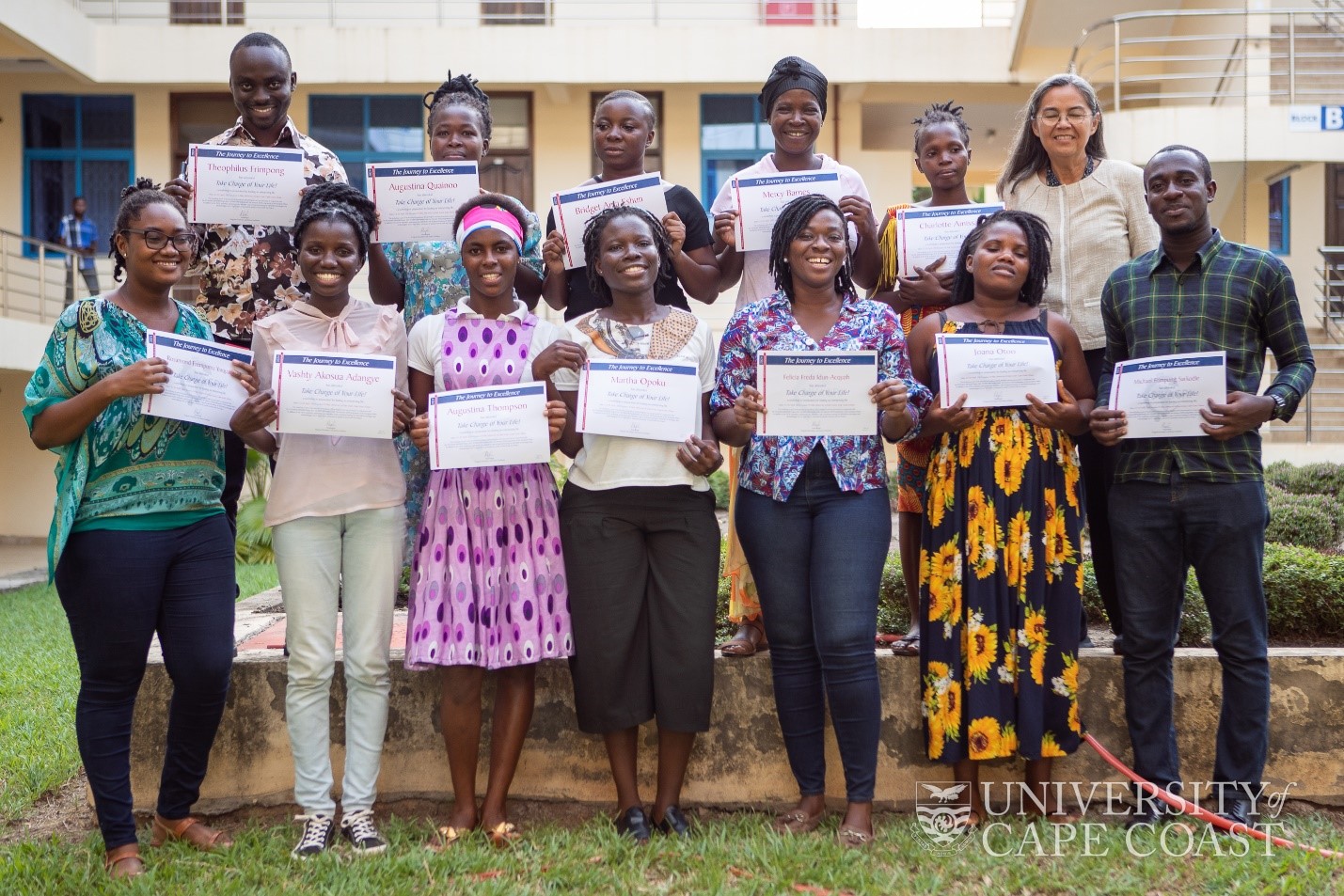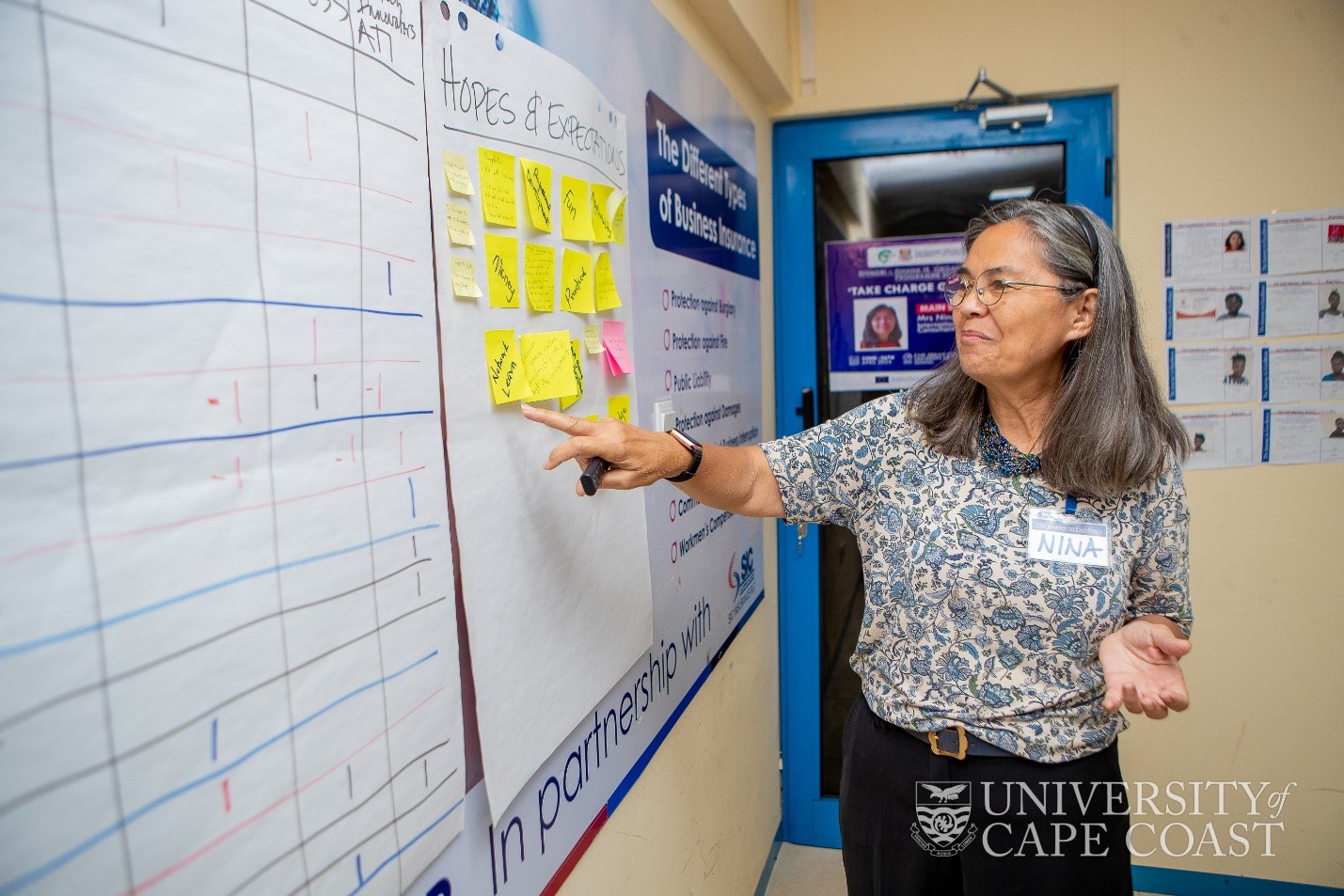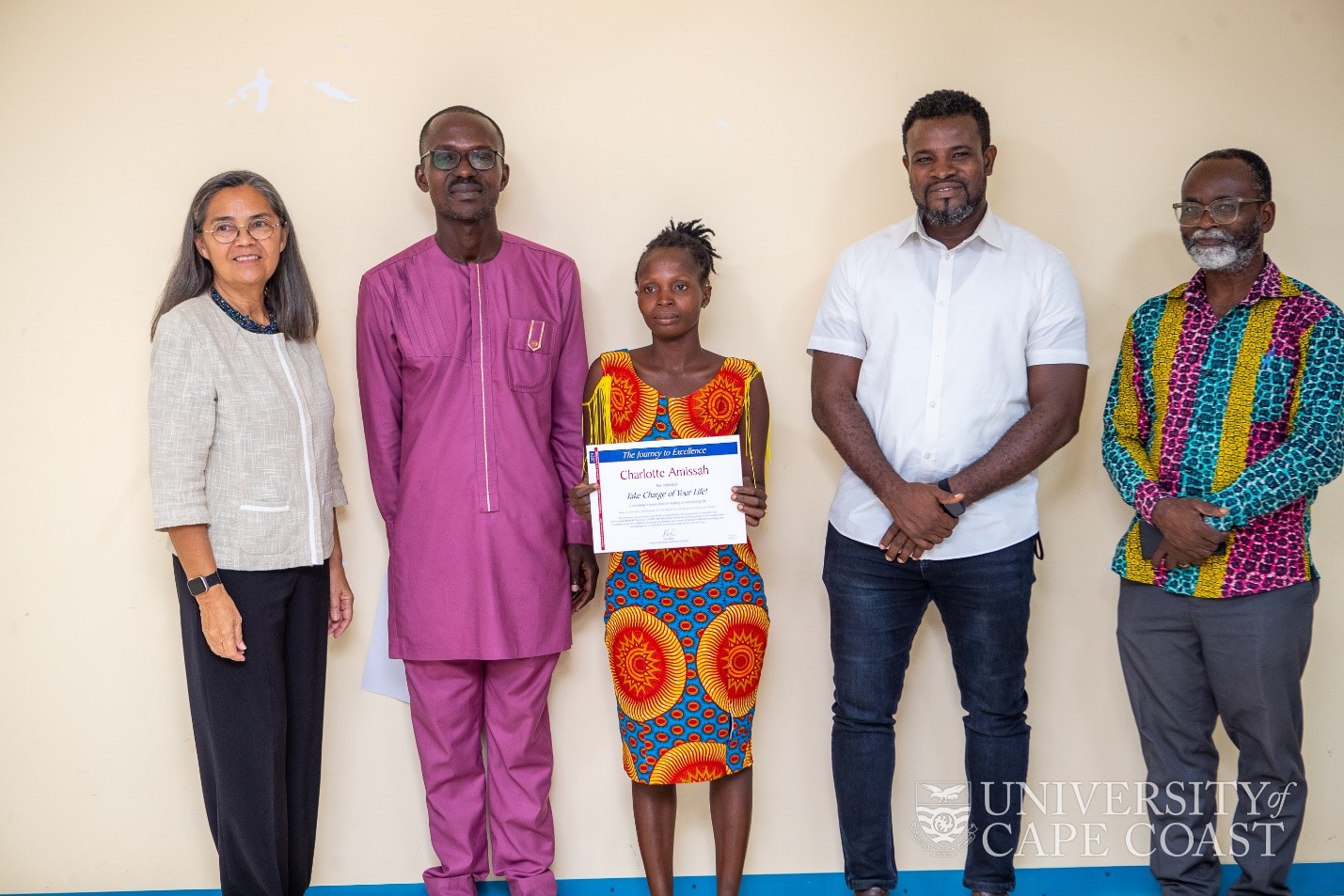Some selected female farmers from Mankessim in the Central Region have undergone training to be equipped with skills on how to live enterprising lives and gain income-generating opportunities for improved livelihood.
The week-long event took place at the Design Thinking and Innovation Hub (D-Hub) of the University of Cape Coast (UCC) from Tuesday 23rd to Friday 26th April, 2024. The training forms part of the four-year European Union (EU) Project titled: “‘Revenue Diversification Pathways in Africa through Bio-based and Circular AGRIcultural Innovations (DIVAGRI)’.
The Project, which began in June 2021 and will end in May 2025, is aimed at increasing the productivity, income and economic opportunities of subsistence and smallholder farmers in arid and semi-arid regions of Sub-Saharan Africa by exposing them to the opportunities of agricultural circular economy technologies.
Other training beneficiaries included UCC students and researchers from the Crops Research Institute of the Council of Scientific and Industrial Research (CRI-CSIR).
The team visited the Lake Agege Farm (a partner on the project) located at Baifikrom at Mankessim, where they were exposed to technologies such as biogas, self-regulating low-energy clay-based irrigation (SLECI), and greenhouse technologies.
The participants had the opportunity to visit the UCC pilot site (at the Teaching and Research Farm) where they were also introduced to the installed technologies such as the solar-supported single-stage biogas digester, intercropping, biochar kiln, black soldier fly technology, SLECI, mushroom production, as well as the desalination greenhouse.
The workshop at the D-Hub was dubbed, ‘Take Charge of your Life (TCYL)’, and it was aimed at exposing participants to the concept of a growth mindset and living an enterprising life.
The main facilitator was Mrs Nina E. Mapili, an International Private Consultant based in Switzerland. It was coordinated by Dr. Francis Kumi, the principal investigator of the project and a Senior Lecturer at the Department of Agricultural Engineering and Dr. Edward Amarteifio, who is also a Senior Lecturer at the School of Business-UCC.
Mrs. Mapili and Dr Amarteifio encouraged the participants to consider the knowledge impacted as the new seed for the growth of their businesses which they were going to nurture through the application of the knowledge.
During the Project, Dr. Francis Kumi provided a comprehensive overview of the seven technologies under pilot and almost ready for demonstration on farmer fields.
He said the focus of the DIVAGRI Project was to teach farmers how to fish by providing them with tailor-made agri-based knowledge and solutions.
Addressing the closing ceremony, a former Provost of the College of Agriculture and Natural Sciences at UCC, Prof. L. K. Sam-Amoah expressed optimism that the training would influence participants' attitude to finding ways of getting additional income within the agricultural value chain.
He said farming activities formed only one part of agriculture and that in addition to work in the field, farming was also a business and should be as such to obtain the best results.
Facilitators of the workshop with one beneficiary(middle)
He urged participants to absorb the insights shared with their fellow farmers, while expressing gratitude to the EU and the main facilitator of the workshop.
Ms. Felicia Freda Idun-Acquah, a participant in the training, expressed gratitude to the DIVAGRI Project for providing the platform to educate them on how to diversify revenue in the agriculture value chain.
After the training, the DIVAGRI Project presented each participant with a certificate of participation.
Source: Documentation and Information Section-UCC



